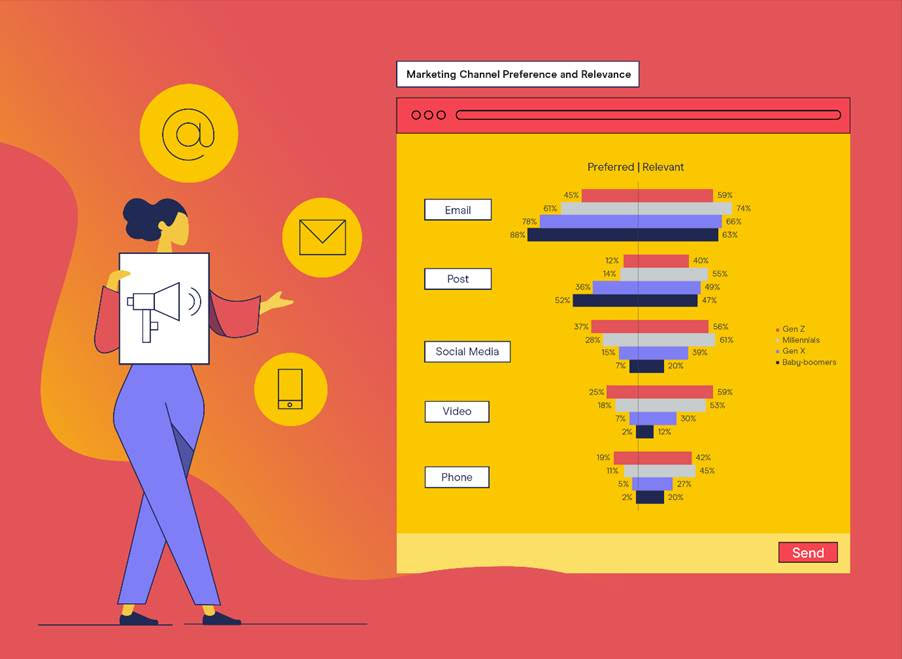According to new research from the Data & Marketing Association’s (DMA), millennials are the most willing to trust marketing messages, having significantly higher levels of trust than older generations.
On average, 53% of millennials (those born between the 1980s and early 2000s) trust marketing mediums, compared with just 40% for Gen X (born between 1965 and 1980) and 29% for Baby-boomers (born between 1945 and 1965). Email is the most trusted medium from the millennials’ perspective, with over two-thirds (69%) trusting this source.
Baby-boomers are less trusting across almost all the marketing channels surveyed for, except messages received by mail (53%) or in face-to-face interactions (50%) – the latter is something all generations appear to have a high level of trust with.
Tim Bond, Head of Insight, DMA, said: “While email still leads the way across all generations, in terms of preference and trust, beyond this central channel there is a myriad of ways brands could engage customers. The differences between generations highlight key trends that brands should be aware of when planning their marketing campaigns. This analysis also highlights the potentially virtuous cycle of improving customers’ perception of trust, for example, on the preference and relevance for each channel.”
Email is the most popular channel to receive marketing messages from brands – with 73% of consumers ranking it in their top two preferences.
However, there is a marked difference in this generationally. While email is the channel preferred most by Gen Z (45%), it is far less pronounced in comparison to other age groups.
This figure may be influenced by a preference to receive brand content through other channels like social media (37%), video (25%), and even phone calls (19%). Gen Z is also more likely to report messages received via social media (56%) and video (59%) as relevant.
At the other end of the generational spectrum, Baby-boomers prefer email (88%) and mail (52%) significantly more. This older group of consumers are also significantly less likely to find the marketing messages they receive through many of the channels asked about as relevant – with just email (63%) on a par with other generations.












